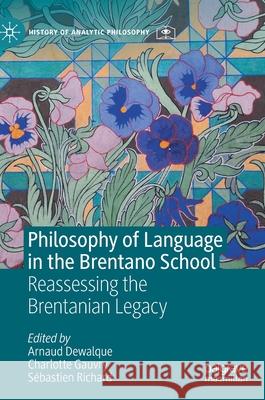Philosophy of Language in the Brentano School: Reassessing the Brentanian Legacy » książka
topmenu
Philosophy of Language in the Brentano School: Reassessing the Brentanian Legacy
ISBN-13: 9783030522100 / Angielski / Twarda / 2020 / 322 str.
Philosophy of Language in the Brentano School: Reassessing the Brentanian Legacy
ISBN-13: 9783030522100 / Angielski / Twarda / 2020 / 322 str.
cena 522,07
(netto: 497,21 VAT: 5%)
Najniższa cena z 30 dni: 462,63
(netto: 497,21 VAT: 5%)
Najniższa cena z 30 dni: 462,63
Termin realizacji zamówienia:
ok. 22 dni roboczych.
ok. 22 dni roboczych.
Darmowa dostawa!
Kategorie BISAC:
Wydawca:
Palgrave MacMillan
Seria wydawnicza:
Język:
Angielski
ISBN-13:
9783030522100
Rok wydania:
2020
Wydanie:
2021
Numer serii:
000380819
Ilość stron:
322
Waga:
0.59 kg
Wymiary:
21.01 x 14.81 x 2.24
Oprawa:
Twarda
Wolumenów:
01
Dodatkowe informacje:
Wydanie ilustrowane











